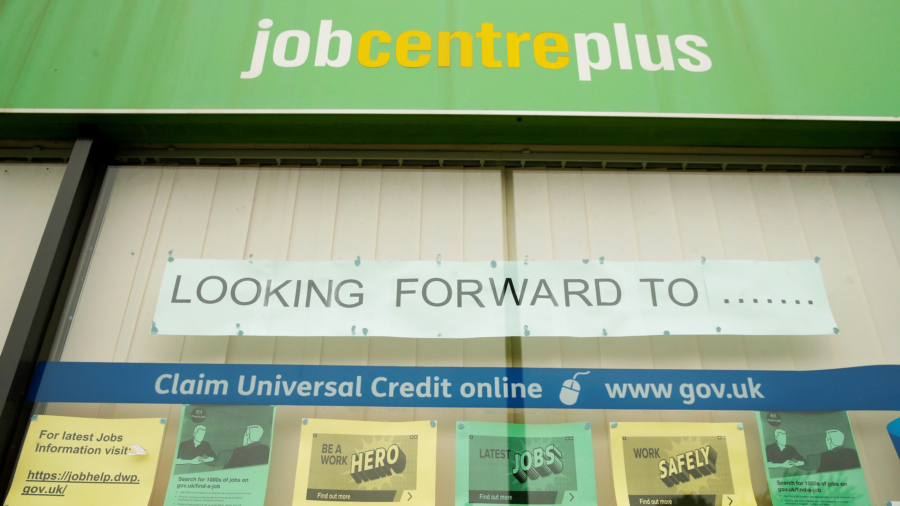LONDON—British finance minister Rishi Sunak announced a 30 billion pound ($37.7 billion) plan to head off an unemployment crisis by paying employers to bring back their furloughed workers and cutting taxes for the hospitality sector and homebuyers.
“I want every person in this House and in the country to know that I will never accept unemployment as an unavoidable outcome,” Sunak told parliament on Wednesday.
“We haven’t done everything we have so far just to step back now and say, ‘job done’. In truth, the job has only just begun.”
Britain’s economy shrank by 25 percent over March and April, and recovery for its worst-hit sectors remains a long way off.

Under the bonus plan, employers would be paid 1,000 pounds ($1,256) for every worker who returns to their job after the furlough scheme expires at the end of October.
With more than 9 million jobs currently covered by the scheme, the cost of the bonuses could be as much as 9 billion pounds, Sunak said.
To help Britain’s hospitality and tourism sectors, which are struggling to cope with social distancing rules, he announced a cut in value-added tax to 5 percent from 20 percent for six months.
Shares in British housebuilding, pubs, and restaurant firms rose as Sunak spoke.

People eating out in August between Monday and Wednesday would receive a discount of up to 10 pounds each, paid for by the government.
Sunak is already on course to take state borrowing to World War Two levels.
With close to 45,000 confirmed coronavirus-linked deaths, Britain has been hit harder by the pandemic than any other European country.
Sunak’s plan includes a 2 billion pound ($2.5 billion) fund to create six-month work placement jobs for unemployed 16-24 year-olds and the largest ever rise in partly government-funded apprenticeships.
Sunak said he will spend a further 3 billion pounds to improve the energy efficiency of homes and public buildings, which would support more than 100,000 jobs.
Property Tax Cut Too
In a bid to breathe life into the housing market and the broader economy, he raised a threshold for a tax on property purchases to 500,000 pounds, four times its current level, with immediate effect until March 31.
Three weeks after the end of lockdown in most of the UK, the number of shoppers visiting retailers is still down by nearly 50 percent from a year ago.

Spending on hospitality and entertainment was also down by almost half compared with a year ago when pubs and restaurants reopened last weekend for the first time since March.
Britain’s economy looks set to shrink by more than 10 percent this year, the International Monetary Fund predicted in June, worse than the United States and Germany, although a less severe contraction than in some other European countries.
Sunak also has to contend with the uncertainty linked to Britain’s departure from the European Union, as London and Brussels continue to wrangle over a deal to formalise their post-Brexit trade relationship from the start of next year.
In the face of so much uncertainty, Sunak has resisted calls to announce a full budget statement now, leaving him fiscal firepower to deploy in the autumn.
By Andy Bruce and David Milliken

